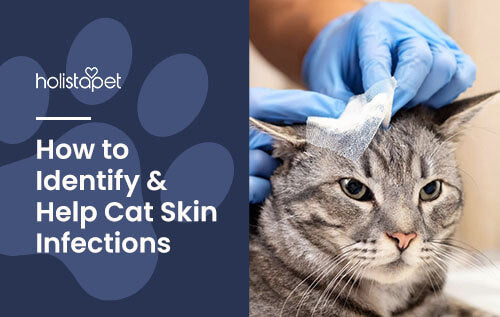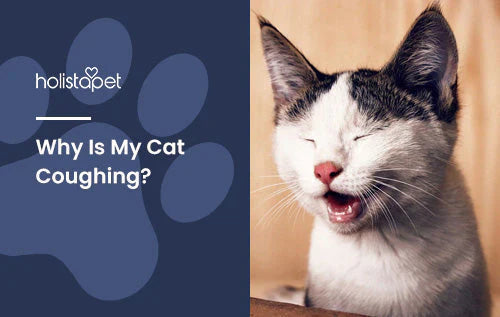Sometimes, new cat owners worry when their feline friends spend so much time asleep. But how many hours a day does a cat sleep exactly?
It might surprise you to know that most cats spend anywhere from 12 to 16 hours a day snoozing. This amount may seem like a lot, but it's completely normal since cats are natural-born nappers. Whether they're young kitties or senior cats, their sleeping habits greatly affect their health and well-being.
In this article, we'll help you understand how much shuteye your furry friend needs. Then, we'll give you tips to help them get all the rest they need for all their fun adventures.
Understanding a Cat's Sleep Patterns
Felines have unique sleeping patterns that differ greatly from those of humans. Cats experience two main types of sleep: non-rapid eye movement (NREM sleep) and rapid eye movement (REM sleep).
During NREM sleep, cats rest lightly and remain alert to their surroundings. During REM sleep, cats go into deep sleep mode, often twitching or dreaming due to brain activity. These sleep cycles allow felines to recharge their energy for their instincts, like hunting and playing.
By understanding your cat's sleep habits, you can better spot any changes that might point to health issues. Knowing what's normal for your dear kitty can help them stay happy and well-rested.
Average Sleep Duration for Cats
Adult cats need about 12 to 16 hours of sleep each day, although some may clock in more hours. This duration is normal and helps them conserve energy for hunting, playing, and exploring.
Kittens and older or senior cats might sleep even longer. They can sometimes snooze for up to 20 hours per day. Factors like age, activity level, and overall health come into play here.

Why Do Cats Sleep So Much?
Is your cat sleeping a lot? As mentioned, it's totally normal behavior. Cats sleep so much because their bodies need to conserve energy.
In the wild, cats are natural hunters. Sleeping helps them store the energy they need for stalking, chasing, and capturing prey. Even though domestic cats no longer need to hunt for survival, this instinct remains.
Also, cats have what's called a crepuscular nature. This means they're usually awake and most active during dawn and dusk. Felines need to sleep throughout the day to prepare for these active periods.
Factors That Affect a Cat's Sleep
Several factors affect cats' sleeping habits, including age, activity level, environment, and health conditions. Each element can determine how much and how well your cat sleeps. Let's look at each one of them in more detail.
Age and Activity Level
Younger cats tend to sleep more because their bodies are still growing. They could use the extra rest to support their development. Kittens can snooze up to 20 hours a day, with their sleep split between short, frequent naps.
Adult cats may sleep between 12 to 16 hours daily, depending on their activity level. Highly active kitties might take shorter naps but still get a lot of rest throughout the day.
In their senior years, cats need more sleep. They often experience issues like less mobility and lower energy levels, which make enough rest even more important.
Environment and Comfort
Cats prefer quiet, comfortable spaces where they can feel safe and undisturbed. Get your cat a cozy bed with soft bedding and place it away from the hustle and bustle of the house. This can help your kitty get quality sleep.
Temperature matters, too. Our cat friends like to seek out warm areas to curl up in, which helps them regulate their body temperature. Make sure your cat's sleeping area is warm but not too hot.

Health Conditions
Cats suffering from sleep disorders or health issues like kidney disease and arthritis don't get to sleep well. These conditions bring discomfort, causing many restless nights. Also, if your cat is dealing with stressors, they might sleep more or less than usual.
Keep an eye on your cat's health and behavior, and note any significant changes. Report them to your vet to get your cat the care they need.
Related Post: Signs of Stress in Cats+ Suggested Solutions
How To Help Your Cat Sleep
Are you concerned about your cat's sleeping habits? By putting together the right environment and a stable routine, you can help them get their best sleep yet. We'll explore specific ways to achieve this in the following sections, so keep reading for more helpful insights.
Creating a Comfortable Sleep Environment
To help your cat sleep better, create a comfortable and secure sleep environment. Here are some tips to do that:
- Provide a Cozy Bed. Place a soft bed or blanket in a quiet, secluded area of your home. This can help your cat feel safe and relaxed.
- Mind the Temperature. Cats enjoy warm spots, so place their bed in a sunny area or near a gentle heat source. The warmth will help them settle into a deep sleep.
- Maintain Cleanliness. Keep their sleeping area spotless and free of strong odors. A fresh, clean environment can bring them more peaceful and uninterrupted rest.
Establishing a Routine
A consistent daily routine can help improve your kitty's sleep quality. Here's how you can create a good schedule for your cat:
- Set Regular Meal Times. Feed your cat at the same times each day. A predictable schedule can help regulate their sleep-wake cycles.
- Incorporate Daily Playtime. Schedule active play sessions during the day. This can tire your pet out and make them sleep soundly through the night.
- Stay Consistent. Stick to these routines consistently. Over time, this will encourage healthier bedtime habits and support your cat's overall well-being.
What To Do with a Cat That Struggles To Sleep
If your furry friend struggles to sleep, the first step you need to take is to find out the root cause. It might be environmental or health-related. After you find out what's going on, you can take the right steps to address the problem. In the following sections, we'll discuss specific strategies you can try to help your kitty sleep better.

Identifying the Causes of Sleep Issues
To help your cat overcome sleep issues, first identify what might be causing the problem. Here are a few possible reasons:
- Changes in Environment. Has there been a recent change in your home? Maybe a new pet, more noise, or schedule changes? These can make your kitty feel uneasy and unable to relax.
- Health Concerns. Health problems like kidney disease, arthritis, or restlessness can lead to uncomfortable nights. Watch your cat for signs of discomfort or unusual behavior.
- Routine Changes. Cats thrive on stability. Any disruptions in their daily routine can affect their sleep.
Behavioral Adjustments To Improve Sleep
Making small behavioral adjustments can help improve your cat's sleep quality. Try the following strategies:
- More Exercise. Make sure your pet has a lot of physical and mental stimulation during the day. Regular playtime can help tire them out, making it easier for them to settle down at night.
- Calming Bedtime Routine. Create a nightly routine that can tell your cat it's time to sleep. Try gentle petting or offering a treat to help your cat wind down.
- Consistent Schedule. Stick to a reliable daily routine. Consistency can give your cat a sense of security, which can help them sleep better without worries.
Can CBD Help Cats Sleep?
CBD, or cannabidiol, is a natural compound found in the cannabis plant. It's famous for its calming effects. When it comes to helping cats sleep, CBD may promote relaxation and potentially reduce anxious behaviors.
By interacting with the endocannabinoid system (ECS), which promotes internal balance, CBD may help regulate mood and promote a sense of calm. This soothing effect can make it easier for your furry friend to fall asleep and stay asleep.
At HolistaPet, we offer a range of quality CBD products for cats. Try our CBD Oil for Cats, CBD Cat Treats, and CBD Calming Soft Chews. We use premium, broad-spectrum CBD to ensure safety. This means there's no THC (tetrahydrocannabinol), the mind-altering compound in cannabis, in any of our CBD pet products.
Potential Benefits of CBD for Cats
CBD can benefit our feline friends in different ways. When it comes to sleep, CBD can:
- Promote Relaxation. CBD may help cats feel more relaxed, creating a calmer state ideal for sleeping.
- Potentially Reduce Discomfort. When soreness strikes, CBD can be soothing and help cats settle down.
- Support Overall Well-Being. CBD may support a sense of balance in the body, which can help cats enjoy better sleep and overall health.
Final Thoughts on Cat Sleep Patterns
Sleep plays a key role in your cat's health and happiness. Understanding their bedtime habits can help you provide better support. Whether it's creating a comfy sleeping space, establishing a routine, or exploring natural remedies, there are many ways to help your kitty achieve the restful sleep they need.
For added support, try our range of CBD cat products. By integrating these solutions into your cat's routine, you can help them stay well-rested, balanced, and ready for all of life's great adventures.







![Probiotics For Dogs [Soft Chews] - HolistaPet](http://www.holistapet.com/cdn/shop/files/Probiotic-Infographic-1_472d7a29-e30c-435a-9638-1365d8c3a9f9.jpg?v=1725384841&width=104)




























Leave a comment
All comments are moderated before being published.
This site is protected by hCaptcha and the hCaptcha Privacy Policy and Terms of Service apply.